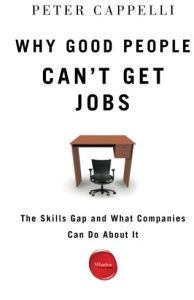
Why Good People Can’t Get Jobs
The Skills Gap and What Companies Can Do About It
Recommendation
The media may editorialize about a workforce “skills gap,” but education is not the problem. The hiring process is to blame, says Wharton management professor Peter Cappelli. Contrary to popular wisdom, he says, candidates do have the academic skills they need, but employers’ training and hiring processes need vast improvement. For instance, application screening software creates hurdles few applicants can overcome and eliminates many applicants with relevant skills. Expectations that candidates will arrive with the knowledge they need for a specific job means that only candidates with experience in exactly that job get hired. Capelli parses the myths surrounding the skills gap and addresses misconceptions about today’s workforce. He urges companies to use training to create the best possible employees and to weigh training costs against the financial penalties of job vacancies, which are more expensive than most managers realize. Cappelli concludes his brief but powerful manual with a list of training options and examples of companies that have implemented them successfully. getAbstract recommends his treatise to any managers who hire and all HR directors and officers.
Summary
About the Author
Management professor Peter Cappelli directs the Center for Human Resources at the Wharton School of Business, where he teaches. He writes for The Wall Street Journal and Bloomberg Businessweek.

Comment on this summary